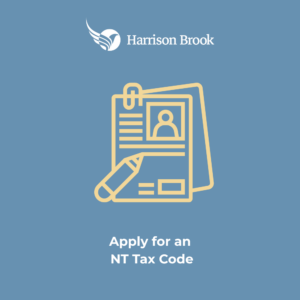
For many British nationals approaching retirement, moving abroad is no longer just a dream but a practical choice.
Overseas retirement involves careful planning to ensure a smooth transition and a secure future in a new country.
However, the decision is not only about sunshine and lifestyle. Retiring abroad with a UK pension raises key considerations, including critical financial planning questions. From tax treatment and double taxation agreements to pension transfer options and currency management, the financial implications of choosing to move abroad for retirement should be at the heart of any decision.
Understanding how your UK pension works when retiring abroad
The first question many ask is: what happens to my UK pension if I retire abroad?
- State Pension: You can usually receive it abroad, but whether it increases each year depends on where you live. Retirees in the EU, EEA, and countries with a reciprocal agreement continue to receive uprated payments. Others may face frozen pensions. It’s important to understand the UK state pension rules and how the state pension age affects your eligibility and timing for claiming your pension when retiring overseas.
- Workplace and private pensions: These can typically be paid to you wherever you live, but tax treatment and currency exchange fees must be carefully managed. Pension benefits may also be affected by your residency status and the way different countries tax pension income.
- International SIPP or QROPS: These structures can give expats more control, allowing pension funds to be consolidated, invested globally, and paid in multiple currencies. Managing foreign income from pensions and ensuring compliance with local tax rules is essential to avoid unexpected liabilities.
Financial planning, not location alone, determines how much of your retirement income you will actually enjoy.
Tax treatment and double taxation agreements
A central part of choosing the best retirement destination is understanding tax. It’s crucial to be aware of your tax obligations when retiring abroad, as these can significantly impact your finances. The UK has double taxation agreements with many countries, ensuring you are not taxed twice on the same pension income.
- Portugal: Known for its Non-Habitual Resident (NHR) regime, which can reduce your overall tax bill on foreign pensions.
- Greece: Offers a flat rate on overseas pensions.
- Spain and France: Both have agreements with the UK, meaning pensions are usually taxed in your country of residence, not in the UK.
Different countries offer various tax advantages, incentives, and residency programs to attract retirees, so it’s important to compare what each destination provides.
Before retiring abroad, expats should always review how their pension income will be taxed, what local rules apply, and whether a pension transfer could improve efficiency.
Currency exchange and financial risk
Currency fluctuations are often overlooked but can significantly affect income. Receiving your pension in sterling but spending in euros exposes you to ongoing exchange rate risk.
Solutions include:
- Using a multi-currency bank account.
- Setting up an International SIPP that allows you to hold investments in multiple currencies.
- Working with an expat financial adviser to implement strategies that reduce volatility.
Managing this risk is as important as choosing a country with low living costs, as effective currency risk management is one of the key factors in successful overseas retirement planning.
Cost of living, healthcare, and private health insurance
Retirees often ask: is it cheaper to retire in Spain than in the UK? The answer is generally yes, but financial planning is still essential. Typical living expenses for retirees include rent, utilities, groceries, transportation, and entertainment, with monthly costs varying by country and city size. For example, in popular destinations, monthly costs can range from €1,200 to €2,500 depending on lifestyle and location.
- Spain and Portugal offer affordable property and healthcare.
- France and Italy have higher living costs but strong healthcare systems.
- Malta and Cyprus provide English-speaking environments but vary in expenses. Malta, in particular, offers the Malta Retirement Programme, which is designed for UK pensioners and provides tax benefits, specific eligibility criteria, and requires health insurance coverage.
When evaluating cost of living, expats should compare the monthly cost of living in different European countries, as these can differ significantly for retirees. It is also crucial to understand the public healthcare system in your chosen country and whether you will need private insurance, private health insurance, or other health insurance to cover potential medical bills, as public systems may not fully cover all healthcare expenses for expatriates.
The role of pension transfers
Another financial consideration is whether to transfer your pension. Some expats consider QROPS (Qualifying Recognised Overseas Pension Schemes), though these are now more restricted. In many cases, an International SIPP is a more suitable and cost-efficient solution, keeping your pension under UK regulation while providing global investment options and currency flexibility.
Transfers can be beneficial for:
- Consolidating multiple pensions.
- Gaining investment flexibility.
- Reducing currency conversion costs.
- Enhancing overall retirement benefits by improving flexibility, tax efficiency, and retirement income planning for expat retirees.
But transfers also carry risks, so regulated advice is essential.
Lifestyle and expat community
While financial security is crucial, lifestyle remains important. Many retirees are drawn to the laid-back lifestyle offered by these countries, which provides a relaxed and stress-free environment. Retirees often choose destinations with strong expat communities, making integration smoother. These countries are popular with foreign retirees, expat retirees, UK expats, and UK nationals, who benefit from established support networks and tailored services. Spain, Portugal, and France attract the largest numbers of British retirees, while Malta offers the benefit of English as an official language. These destinations are considered among the most desirable countries, popular retirement destinations, ideal retirement destinations, and safest countries for UK pensioners seeking the perfect retirement location.
These communities can also provide valuable peer support when navigating financial and administrative systems abroad. Additionally, many of these countries offer alternative living arrangements for retirees seeking flexibility and affordability in their chosen retirement location.
Best countries to retire with a UK pension
Retiring abroad is an increasingly popular choice for UK retirees seeking a better quality of life, lower living costs, and the chance to make the most of their retirement savings. For many UK citizens, the best countries to retire are those that combine an affordable cost of living with excellent healthcare access and attractive tax benefits for foreign pension income.
Countries such as Portugal, Spain, and Malta consistently rank among the best countries to retire for British expats, thanks to their relatively low cost of living, high-quality healthcare systems, and welcoming expat communities. These destinations also tend to offer straightforward residency options and favorable tax treatment for pension income, making it easier for UK retirees to stretch their retirement savings further.
Other popular retirement destinations include France, Italy, and Cyprus, each offering their own unique blend of culture, climate, and lifestyle. While living costs and healthcare access can vary, many UK retirees find that these countries provide a comfortable and enjoyable life abroad, with the added benefit of established British expat networks.
Ultimately, the best country to retire in with a UK pension will depend on your personal preferences, financial situation, and desired lifestyle. Whether you prioritize affordable healthcare, a warm Mediterranean climate, or a vibrant expat community, there are many countries to retire that cater to the needs of UK pensioners looking to enjoy their retirement abroad.
FAQs – Which country is best to retire in with a UK Pension?
Which countries freeze UK pensions?
Countries outside the EU/EEA or without a reciprocal agreement, such as Australia and Canada, result in frozen pensions.
Is it worth transferring my pension abroad?
In some cases, yes. An International SIPP can provide flexibility and tax advantages. A regulated adviser should review your circumstances.
Can I still keep my UK bank account?
Yes, but exchange rates and international fees make local or multi-currency accounts more efficient.
What is the cheapest but safest European country to live in?
Portugal is considered one of the most affordable and secure options, with added tax incentives for expats. Many UK pensioners look for the cheapest countries in Europe that offer a good quality of life, and Portugal, Spain, and Greece are often highlighted. Some destinations also offer a golden visa, providing residency through investment.
Do I need expat financial advice?
Yes. Professional advice ensures you maximise pension income, avoid double taxation, and manage exchange rate risks effectively.
What are the visa requirements for retiring abroad?
Visa requirements vary by country, but most destinations require proof of income, health insurance, and sometimes background checks. Many retirees apply for a retirement visa, which is specifically designed for those who wish to live abroad without working. Some countries offer a pathway from a temporary visa to a permanent visa or a permanent residence permit, allowing long-term settlement. Achieving the right residency status is essential for accessing healthcare, tax benefits, and other public services.
What retirement programs are available for UK pensioners?
Several countries offer retirement programs tailored to foreign retirees. For example, Spain provides a non lucrative visa for those with sufficient passive income, while Italy offers the elective residence visa for retirees who can demonstrate financial self-sufficiency. Passive income, such as pensions or rental income, is often a key eligibility factor for these programs.
What steps are involved in moving abroad as a retiree?
To settle abroad, you typically need to research your destination, understand visa requirements, secure health insurance, and arrange accommodation. The process often involves gathering financial documents, applying for the appropriate visa, and planning for long-term residency.
Making the right decision
So, which country is best to retire in with a UK pension? While Portugal and Spain remain popular choices, the real answer lies not in geography but in financial planning. With the right structures in place, British retirees can enjoy their pensions tax-efficiently, avoid double taxation, and protect themselves against currency risks.
How Harrison Brook can help
At Harrison Brook, we specialise in helping expats maximise their pensions and investments overseas. Our independent advisers provide guidance on International SIPPs, pension transfers, tax planning, and wealth management tailored to your retirement goals.
Whether you are planning to move to Spain, Portugal, France, or beyond, professional financial advice will ensure your pension works as hard as you do in retirement.



